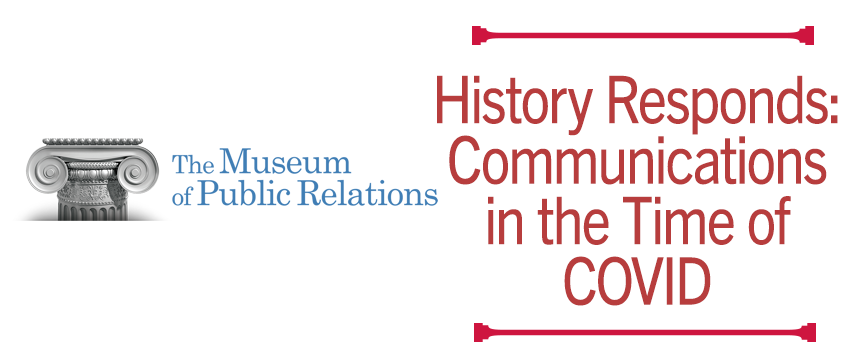Department of Advertising and Public Relations helps with COVID communications curation

Department of Advertising and Public Relations helps with COVID communications curation
The Department of Advertising and Public Relations at Grady College joins the Museum of Public Relations in announcing a major effort to document the PR industry’s response to the COVID-19 pandemic.
Under the banner “History Responds: Communications in the Time of COVID,” the PR Museum and its partners are putting out a call for objects and paper/digital materials that document the PR industry’s response to the COVID-19 crisis, both within their own organizations and in the counsel they gave clients.
Bryan Reber, the C. Richard Yarbrough Professor in Crisis Communication Leadership and head of the Department of Advertising and Public Relations, stressed the importance of this project as an educational guide for decades to to come.
“I think this is a really cool project. Corporations are invited to provide internal Covid-related memos, etc. even if they want it to be embargoed for 30 years before release. Really a great opportunity for current and future research into employee and other stakeholder communication,” Reber said.
Grady College will be responsible for curating the planning documents for the project.
“The Museum of Public Relations was founded on the belief that PR practitioners can learn from the past, both from its mistakes and from its successes,” said the PR Museum’s co-founder Shelley Spector. “In keeping with that belief, we plan to compile and curate the first in a series of collections documenting how public relations practitioners at agencies, businesses, and other institutions respond to the major societal crises of our time.”
The museum’s initial collection will deal with the COVID-19 pandemic. “While we all hope it will be generations before the world faces a pandemic of similar scale,” Spector said, “we believe lessons learned in recent months will have application in other crises, such as cyber-attacks on critical infrastructure, runs on financial institutions, and other widespread disruptions to daily life.”
An advisory council of senior public relations practitioners and academics will curate the donations received. The most telling and insightful material will be preserved in a multi-media repository future scholars, students, and practitioners can consult. The museum also expects its COVID-19 collection to be the basis for future conferences, papers, and exhibits on best practices in serving employees, clients, and consumers during widespread crises.
“We’re asking for items—no matter how modest or mundane—that tell how PR organizations responded to the COVID-19 pandemic,” Spector said. Among the items the museum is looking for are:
- Research that helped shape COVID planning
- PR counsel offered to internal or external clients
- Employee communications addressed to team members
- Marketing communications directly related to the pandemic, e.g., about product shortages, new offers, or advising customers on alternatives to in-person service.
- Artifacts such as branded masks and social-distancing signage created to address the pandemic’s impact on key publics, promote safe behavior, and facilitate vaccination.
In addition to Grady College, this curation is a partnership with the Arthur W. Page Center for Integrity in Public Communications, the Page Society, the Institute for Public Relations and the PR Council. The initiative is modeled on a longstanding New York Historical Society program to preserve history as it happens.
Global communications firm Edelman and United Airlines have already joined as Founding Contributors. The Edelman Trust Barometer indicates that businesses emerged from the pandemic as the world’s most trusted institutions as well as the most ethical and competent.
Reber, and AdPR faculty Yan Jin and Karen Russell all serve on the Board of Advisors for the Museum of Public Relations.
To learn more about History Responds: Communications in a Time of COVID and how to donate material, visit https://www.prmuseum.org/historyresponds